MTSU’s School of Music launched an online Master of Music degree this fall that specializes in music education for current music teachers. Since the program is 100% remote — including online assessments — it is accessible to teachers all across the country.
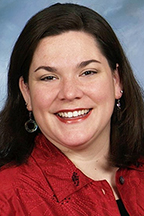
Dr. Jennifer Vannatta-Hall
Jennifer Vannatta-Hall, interim director of the School of Music, explained that the program is “designed for music educators who are currently teaching in K-12 music settings. All courses are taught in the online learning environment, and the program requires completion of a minimum of 33 semester hours.”
Those interested must have a bachelor’s degree in music from an accredited university or college, at least a 3.0 GPA and be concurrently teaching in a K-12 music setting — with at least one year of experience in the classroom — while enrolled in the degree program.
K-12 music educators who qualify include band, orchestra, choir and general music teachers.
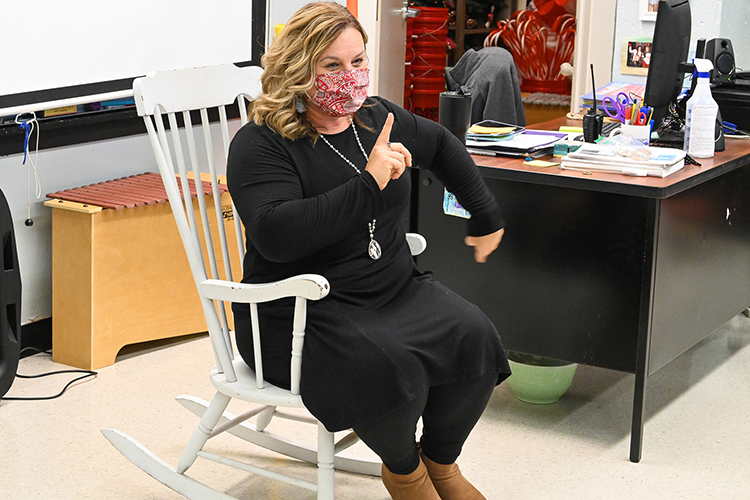
Stacy Ray, the music teacher at Homer Pittard Campus School, teaches her students about high and low pitch notes in Murfreesboro, Tenn., on Nov. 4, 2020. (MTSU photo by Stephanie Barrette)
“Because we’re using so much from their day-to-day teaching practice, there’s a focus on general improvement of their craft and their teaching,” said Chris Dye, assistant professor of instrumental music education and coordinator of music education. “We want that year of practical experience people bring, so they can start reflecting on their experiences while in the program.”

Dr. Christopher Dye
The program features a curriculum tailored to music educators with a range of career goals, explained Dye.
It meets student needs “whether they’re looking to improve their teaching practice,” Dye said, “(are) interested in going on for doctoral studies or moving into leadership roles in professional organizations. Those are the big outcomes we’ve been targeting.”
“This program is very targeted. Every single course is specific to music education,” Vannatta-Hall said. “For most music education programs at the master’s level, students take a set of general, core music courses, then they take courses for their specialty. At MTSU, we have designed every graduate music education course to be practical and applicable for practicing K-12 music educators.”

Dr. Joseph Morgan
Though the program is completely remote, the school maintained a focus on building strong relationships between students and professors.
“The program here is very intimate,” said Joseph Morgan, an associate professor and coordinator of graduate studies for the School of Music . “They have close relationships with professors here despite the fact that it’s asynchronous. There’s so much communication going on between faculty and students that I think it really sets the program apart.”
In addition to offering competitive in-state costs, the program allows out-of-state students to take advantage of MTSU’s eRate tuition, a 42% discount. The eRate for out-of-state students is $2,560 for a three-credit course compared to the usual $4,362.
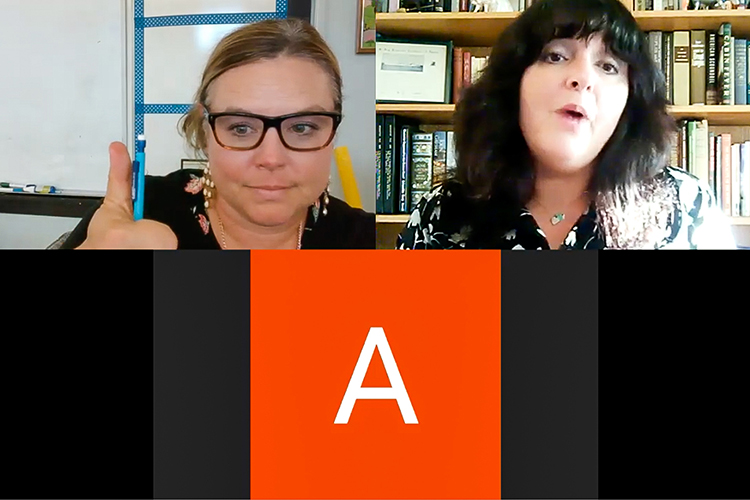
Jamila McWhirter, right, a professor in Middle Tennessee State University’s School of Music, teaches one of the courses from the new online Master of Music program via Zoom to student Stacy Ray, left, this fall semester. (MTSU photo by Stephanie Barrette)
The faculty also added a new course to better equip students pursuing leadership roles in professional organizations.
“The policy and advocacy course is one unique piece that is distinctive from other programs,” Dye said. “Based on our comprehensive look across the country at online programs, that’s kind of a unique course offering.”
He added that there is “a research component, and students complete a master’s project that’s research-based, so if they want to continue on to a Ph.D. program, they are well-equipped for that as well.”
Dye and the faculty hope to grow the program to a cohort of 15 students.
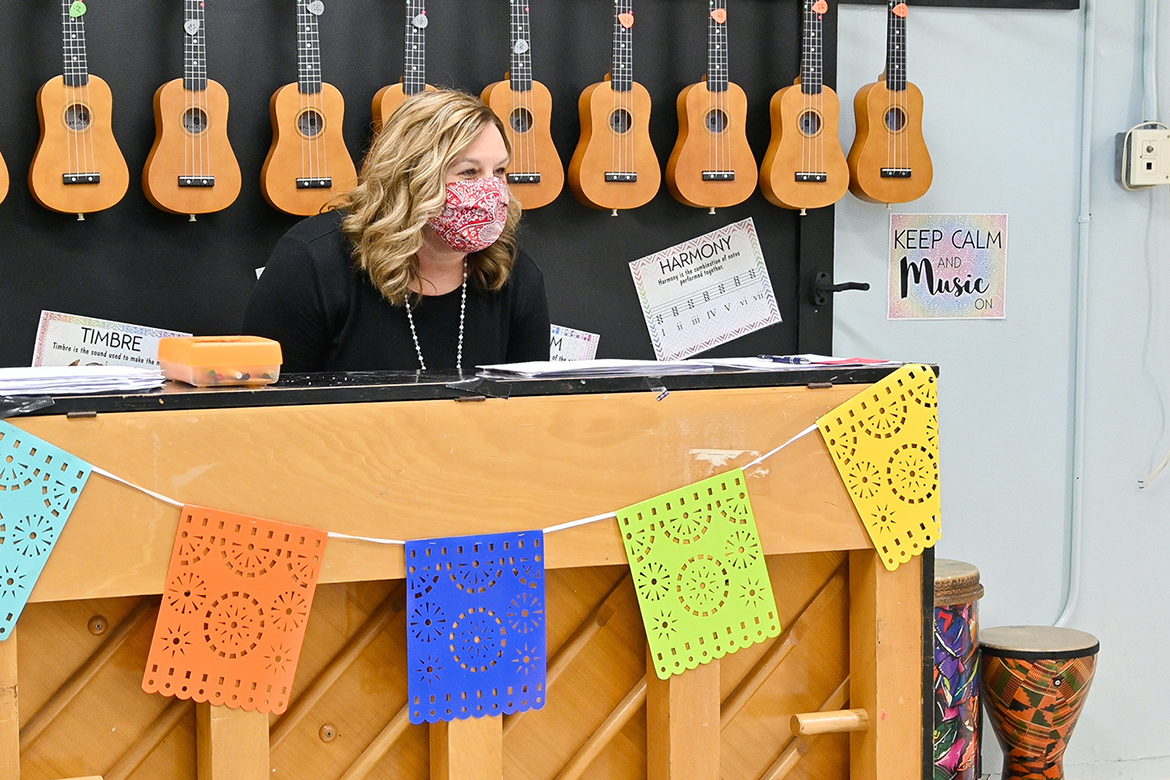
Stacy Ray, the music teacher at Homer Pittard Campus School, plays the piano and sings along with her students in Murfreesboro, Tenn., on Nov. 4, 2020. (MTSU photo by Stephanie Barrette)
‘It feels very, very personal’
Stacy Ray, a music teacher at the Homer Pittard Campus School in Murfreesboro, Tennessee, is a current student in the program.
A full-time teacher and mother of two young children, Ray wanted to earn her master’s degree for years before the Master of Music online program was announced in summer 2020.
“When they devised this program, it just struck a chord with me,” Ray said. “It’s been really, really great. I’ve already applied so much of what I’m learning even in these past few months into the classroom…. It’s seriously made for people like me that are moms and also teaching full-time.”
She received support while transitioning back to student life.
“It’s been a long time since I’ve been in school,” Ray said. “The biggest struggle for me was figuring out the technology of the program itself…. Everyone I’ve contacted has been extremely thorough, extremely helpful. I love that you can have actual live Zoom (support). I’ve even talked to someone that was able to actually log in to my computer. I was on fall break in Florida, and they were helping me.”
She echoed the program’s focus of building strong relationships between students and professors.
“The classes are smaller,” Ray explained. “I get that instant one-on-one. I don’t feel forgotten. It feels very, very personal.”
Admissions to the program are rolling and open now for the spring semester. To apply, visit the program’s website.
To learn more, follow MTSU’s School of Music on Facebook, Instagram and Twitter.
— Stephanie Barrette (Stephanie.Barrette@mtsu.edu)
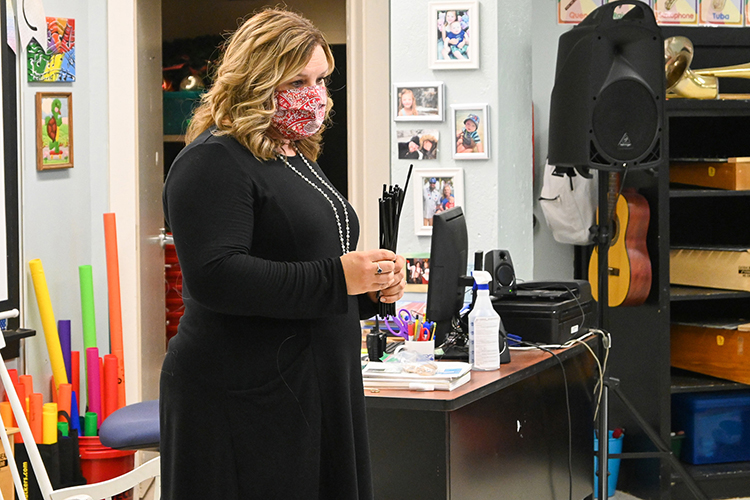
Stacy Ray, the music teacher at Homer Pittard Campus School, explains the day’s activity to her students in Murfreesboro, Tenn., on Nov. 4, 2020. (MTSU photo by Stephanie Barrette)
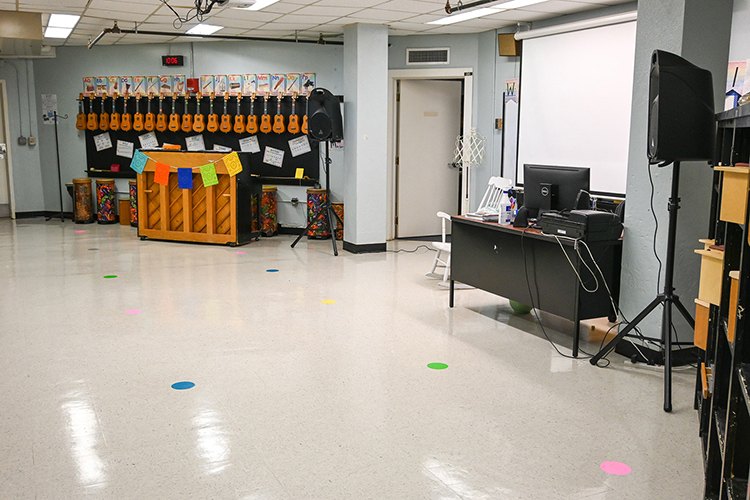
Stacy Ray, the music teacher at Homer Pittard Campus School, has an empty classroom while she fetches her next group of students in Murfreesboro, Tenn., on Nov. 4, 2020. (MTSU photo by Stephanie Barrette)

COMMENTS ARE OFF THIS POST